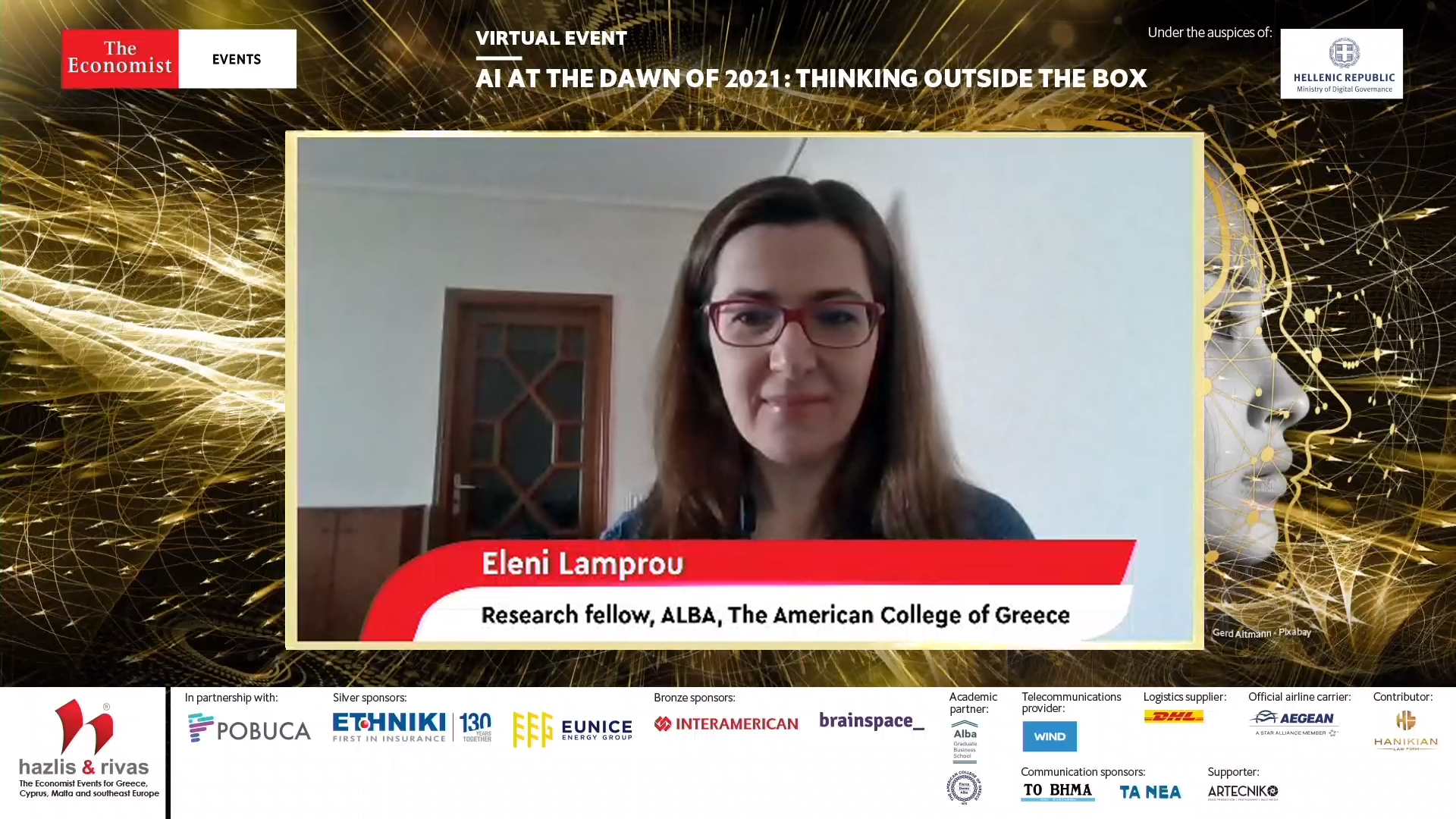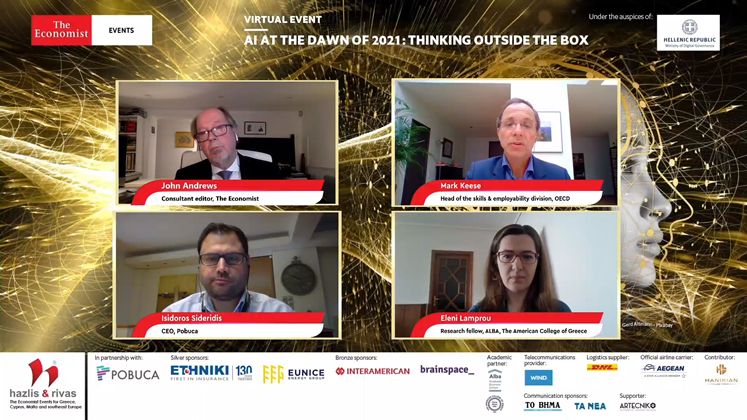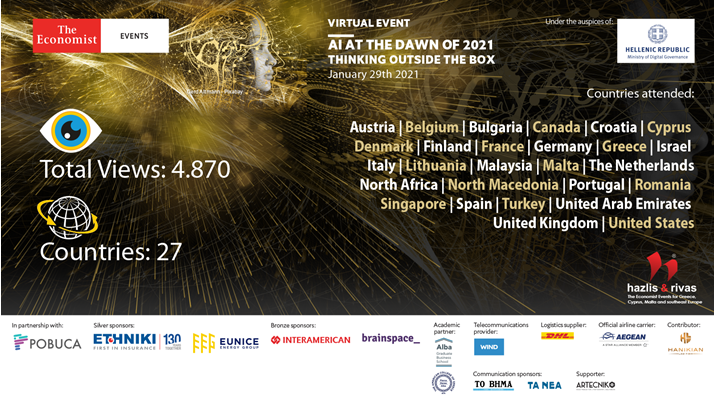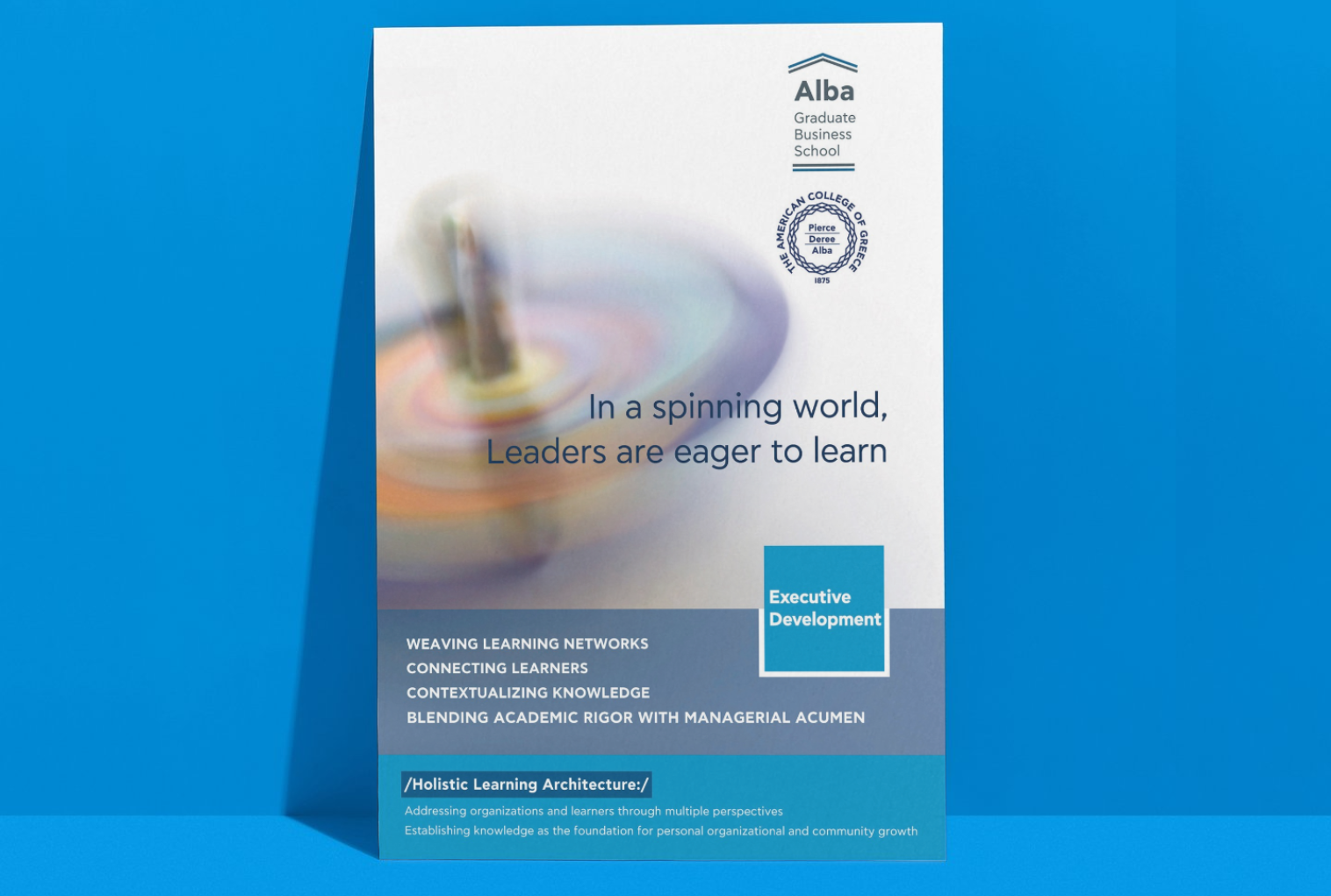Employment and workplace in the COVID-19 era : Assessing AI’s momentum

As humanity is striving against the covid-19 pandemic, the indisputable momentum of artificial intelligence (AI) at the dawn of 2021 inevitably raises determining questions regarding its real impact on our lives and the role it is expected to play in the near future.
How adaptable is the workforce to the new reality? What does reinventing effective working models means? Which new skills are in high demand?
Our Reseach Fellow Dr. Eleni Lamprou, joined The Economist event "AI at the dawn of 2021 : Thinking outside of the box" and the panel “Employment and workplace in the COVID-19 era : Assessing AI’s momentum” to share her thoughts along with Mark Keese, Head of the skills and employability division, OECD and Isidoros Sideridis, CEO, Pobuca.

On the words of Dr. Lamprou "AI can also be expected to find further applications in fields and professions that were traditionally considered ‘immune’ to displacement due to their emphasis on human interaction and situational judgment, such as medicine, law or the creative industries."
According to our research fellow, as the applications of AI become more pervasive it is not only the demand for professionals with technical skills in the design, development and deployment of such systems that will increase. In the cases where AI systems incorporate a degree of human assistance, professionals are likely to be expected to focus on tasks that require higher-order cognitive functions, such as analytical thinking and complex problem solving, an agile mindset, as well as enhanced skills in human interaction, such as increased responsiveness and empathy.
She also stressed the fact that "What is real, even on this day, is that the skillset of individuals whose jobs become displaced does not necessarily match the required skillset for these new jobs. Certain populations appear to be more vulnerable to current and impeding shifts in the labour market, such as women, youth, mature workers, ethnic minorities and people with a limited educational background. In the AI-shaped world of work developing policies and strategies that support the workforce through transitions emerges as a core issue."
Interestingly, according to Dr. Lamprou, in modern career development there is a tendency to assign responsibility for transitions to the individual and such an approach shades the collective backdrop of the situation we are presented with. Having said that "There is significant space for intervention by institutions and organizations, as to develop human-centered practices that ensure lifelong learning, development of transferrable skills, as well as appropriate support and protection for individuals during transitions between jobs or in and out of the job market."
The panel carried on to discuss further about the need for skills like empathy and also tapped into topics related to the ethical deployment of AI.
Commenting on the ethical issues that arise from the use of AI, Dr. Lambrou stressed that, in addition to the ability of an AI application to make decisions that comply with a code of ethics, it is extremely important to ensure that AI applications are developed and designed in an ethically sound manner. More and more organizations - especially large companies - developing AI applications are slowly but surely bringing Ethics to the forefront of their goals for designing and developing AI technologies.
Concluding, regarding the concerns that exist that artificial intelligence will potentially gain so much power that it will become dangerous for human well-being, Dr. Lambrou pointed out that: "The more we engage with artificial intelligence, the more urgently a question comes to the fore: What is it that makes a human being human? If we try to understand what the core of a human being is, what qualities and abilities distinguish human nature itself, we will better understand the limits it has and set the limits that artificial intelligence should have - and we can avoid thus to make AI synonymous with Evil ".
Alba was the academic partner of the event, that attracted participants from 27 countries.






